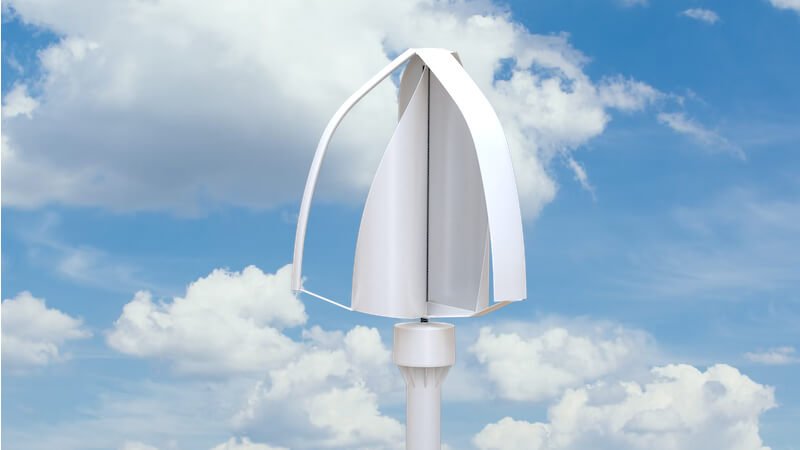
Balcony power plants are becoming increasingly popular. However, some companies are already going a step further and want to privatize wind energy. But is a wind turbine worth it for the garden?
More and more homeowners are opting for a solar system on their own roof. Such an investment usually pays for itself after just a few years and can help to reduce emissions sustainably. But there are now also approaches to making wind power available on private property.
The Icelandic energy start-up IceWind has been offering a supplement to classic photovoltaic systems or balcony power plants for some time: mini wind turbines for the garden. But can these really be a useful addition to solar systems? The consumer advice center warned against private wind power systems some time ago.
Wind turbine for the garden: No danger to nature
While balcony power plants consist of one or two small solar modules and can produce up to 800 watts of power, they are less efficient when there is little sunlight. This is why mini wind turbines could be an alternative. IceWind, for example, promises that these can generate sufficient energy even when there is little sun.
The company offers mini wind turbines under the name “Freya”, which were originally designed for remote regions to ensure a self-sufficient power supply. The mini wind turbines are characterized by a robust design that can withstand even extreme weather conditions.
The vertical axis structure makes the construction reminiscent of a space probe and gives it a futuristic appearance. According to the manufacturer, the design also poses no danger to birds and insects, which is an advantage over conventional wind turbines.
Systems cost several thousand euros
Compared to balcony power plants, IceWind's mini wind turbines are significantly more expensive. The grid-connected version costs around 6,000 euros, while the grid-independent version costs up to 6,500 euros. Simple balcony power plants are available from just 500 euros and can be built yourself with a little skill.
In addition, balcony power plants are eligible for subsidies in many municipalities, which can further reduce costs. In Germany, various legal requirements apply to the installation of mini wind turbines, which can vary from state to state. A building permit is usually required for heights of ten meters or more.
Consumers should therefore check with the relevant building authorities. IceWind currently only sells its mini wind turbines in Iceland and North America, but similar products from other manufacturers are available on platforms such as Amazon. The technology is available, but has not yet been able to demonstrate its practical suitability. A balcony power plant or a PV system will therefore probably continue to make more sense for many consumers.
Also interesting:
Source: https://www.basicthinking.de/blog/2024/06/07/windraeder-fuer-den-eigenen-garten/


